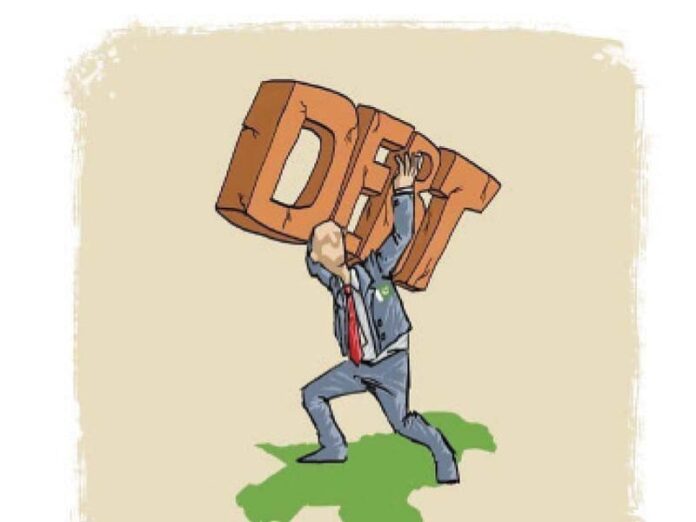ISLAMABAD: The government is compelled to increase electricity prices, despite the fact that circular debt continues to inflate and the state is unable to control it.
The circular debt is increasing on a daily basis, sucking precious financial resources and forcing Pakistan to seek financial help from the International Monetary Fund (IMF) and our friends.
The fourth wrong policy choice is that it discouraged industrialisation and sabotaged the industrialisation process. The 1994 Power Policy proved to be a double-edged sword for the industry.
On one hand, the higher electricity prices devastated the industry, regardless of its size. It greatly affected the competitiveness of the industry, leading to a sharp slump in the export sector and the loss of precious foreign revenue.
On the other hand, the lucrative incentives for Independent Power Producers (IPPs) discouraged investment in the industry. Industrialists found it more profitable to invest in IPPs rather than in the industry itself. These two factors kick-started the de-industrialisation process, which is still ongoing.
Higher prices remain a constant challenge for the industry, and it is anticipated that the standby agreement with the IMF will introduce a new wave of price increases.
Despite these devastating impacts, no government has attempted to change the Power Policy of 1994. Therefore, it is widely accepted that the ruling elite does not want to change this policy.
People believe that the reason for the unwillingness to change the policy is the personal gains of the ruling elite. They not only benefit personally but also oblige their cronies, promoters, and financiers.
The fifth wrong policy choice is the consumption-led growth model. Consumption is not inherently bad if it is met by domestic sources. Unfortunately, in the case of Pakistan, it is the opposite.
Pakistan meets its demand by importing goods and services, including food products. This is happening despite the fact that the country is an agricultural country.
Consumption-led growth has been one of the leading factors in depleting foreign reserves. Regrettably, policymakers have not paid attention to this issue. Instead, successive governments have used consumption to artificially inflate the GDP growth rate.
This strategy helped them win the support of the common people but laid the foundation for the economic crisis that Pakistan is currently facing.
The sixth issue is the unplanned real-estate boom in Pakistan. Housing societies are not only consuming productive lands, but they are also damaging industrialisation and business. The speculative nature of the real-estate business makes it attractive, as everyone wants to get rich quickly.
Additionally, the higher returns and minimum taxes in the sector encourage investment. Industrialists, who would otherwise have to pay higher taxes, are now preferring to invest in real estate.
However, the worst victim of this policy is the agriculture sector, as many housing societies are built on productive agricultural lands in cities like Sialkot, Gujranwala, Faisalabad, and Islamabad. This has greatly impacted food production and food security.
As a result, Pakistan now spends around $10 billion on food imports annually, which puts a huge burden on foreign currency reserves.
Seventh, policy interventions driven by expats, foreign experts, and donors are another area that is hurting the country. The ruling elite is obsessed with foreign experts and policy advice from organisations such as the IMF, World Bank, and other international organisations.
Due to the ruling elite’s inferiority complex, expats and international organisations can sell anything to the government. Indigenous wisdom has no place in the policymaking and implementation process.
Although they have knowledge of the ground realities, their advice is ignored by the government, leading to wrong policy choices such as the Power Policy of 1994, privatisation policy, and real estate.
Eighth, the autonomy of the State Bank of Pakistan (SBP) has weakened the state. Pakistan relinquished its right to use the SBP to control the economy, promote growth, and stabilise prices.
Under the IMF programme, Pakistan committed to making price stability the primary role of the SBP. It also abolished the Monetary and Fiscal Policies Coordination Board, which was used by successive governments to maintain a balance between monetary and fiscal policies, following the IMF’s instructions.
Unfortunately, since the application of this condition of the IMF agreement, the SBP has miserably failed to control prices, and inflation is constantly on the rise.
Furthermore, the government committed to leaving the exchange rate to market forces, which is not a wise decision considering the country’s development status. Developing markets like Pakistan are more prone to speculation and easily become victims of it.
Unfortunately, this is currently happening, as market forces are driving up the exchange rate to generate higher profits, and the government is unable to take any action due to the agreement with the IMF in 2019.
Ninth, education is another victim of wrong policy choices. Pakistan has neglected education, disregarding the vision of the father of the nation, who emphasised the pursuit of scientific and technological education to compete globally. Sadly, the country has failed to follow the founding father’s vision.
Additionally, Pakistan has encouraged the privatisation of education, which goes against the constitution. According to the constitution, it is the state’s responsibility to provide education to every child of the nation.
However, a significant percentage of children (44%) are enrolled in private institutions, and 56% of skill development institutes are owned by the private sector, according to Pakistan Education Statistics Report. This has made education and skill development extremely expensive, and ordinary citizens are struggling to afford it.
As a result, there is a high illiteracy rate and low-quality education, hindering human capital formation and impeding the country’s development. Moreover, it will minimise our chances to benefit from the Fourth Industrial Revolution.
In conclusion, these are just a few examples that have been discussed, but numerous examples can be found across various sectors such as agriculture, water, health, etc. If Pakistan wants to succeed and progress towards development, it must rectify all of these policies. Otherwise, it will have to endure gloomy days ahead.









































